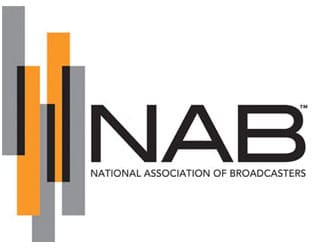 Representatives of the broadcast, MVPD, consumer watchdog and academic communities all provided testimony before the Senate Commerce Committee. The main but by no means not the only topic was retransmission consent. Here are summaries of what the witnesses had to say.
Representatives of the broadcast, MVPD, consumer watchdog and academic communities all provided testimony before the Senate Commerce Committee. The main but by no means not the only topic was retransmission consent. Here are summaries of what the witnesses had to say.
* Gordon Smith, President and Chief Executive Officer, National Association of Broadcasters: (Returning to his old Committee stomping grounds.) Local television is an indispensible source for quality entertainment, news, and disaster information. Service millions, employ hundreds of thousands, is the primary advertising venue, and is offered for free. Proposed changes in the law could have devastating effects on localism. Some think retrans is broken, but NAB believes it is working exactly as intended. Most MVPDs have never been involved in a blackout, and TWC, Dish and DirecTV have been involved in the vast majority. Broadcast still isn’t compensated commensurate with ratings. (Presents the SNL Kagan chart showing disparity between broadcast and basic compensation.) Realizes legislators are worried about blackouts. MVPDs should give customers ample notice of disruptions; make it easier to move from one MVPD to another. Broadcast is interwoven into the community, is a lifeline.
* Melinda Witmer, Executive Vice President & Chief Video and Content Officer, Time Warner Cable: 1992 Act gave broadcast a subsidy called retransmission consent; also get other things like territorial exclusivity. Cable now faces competition from three or more providers almost everywhere, share is now down to about 58%. Many provisions are no longer needed and are counter productive. Retrans is chief among them. Negotiations are marked by blackout threats; networks now demanding a cut, adding to pressure for rate increases and contentiousness. There’s been a big increase in blackouts this year. Claims despite retrans increases, broadcasters are cutting back on local content, consumers just get higher costs. Broadcaster/public social compact is broken. Retrans is the opposite of a free market. Get rid of it to serve the public interest. Says DeMint’s legislation begins an important dialog.
* Martin Franks, Executive Vice President for Planning, Policy and Government Affairs, CBS Corporation: Retransmission is neither broken nor an antique that can be dispensed with. CBS has successfully negotiated many many retransmission contracts and blackouts have been rare. Weather causes more blackouts than retrans negotiations. Retrans was a non-factor until satellite and telcos began to pressure cable monopoly. Retrans has been subject to review over and over as new venues have been brought in to the system. Now distributors that are supposed to be in competition are banding together to get rid of retrans. Urges Committee to look before leaping before creating a brave new marketplace. Either way, CBS will be fine, but smaller players including small cable operators will be squeezed out of business. Large cities will end up serving large regions or even entire states. Video system we have new under existing rules is the envy of the globe.
* Colleen Abdoulah, CEO and Chairwoman of the Board, WOW! Internet, Cable, and Phone, and now Chair, American Cable Association: Laws written in 1992 or 1996 no longer serve consumers. They want what the want on the device of their choice, but outdated laws do not support this. Cites increase in blackouts. Retransmission fees are skyrocketing. Unwanted programming is tied into bundles and forced on consumers. Big companies are playing crazy astronomical fees for sports programming and passing them on to smaller distributors and consumers. Smaller distributors do not have leverage to get programming to their customers; Big Four networks have too much leverage. Says the “abuse of power should be outlawed.” Cites collusion, which broadcasters call shared services agreements. Reform suggestions: No mutual negotiations by separately owned broadcasters; no blackouts, baseball style arbitration during disputes; give consumers new technologies to access broadcast signals.
* Mark Cooper, Director of Research, Consumer Federation of America: Cable market was afflicted by severe anti-competitive and anti-consumer actions. 1996 act failed to discipline cable power, and it continues to this day. Competition has been undermined by by mergers and joint ventures. No effective competition in most locations. Broadcaster rights came without responsibilities, and its being used for bundling. No matter who wins retransmission broadcast of MVPD, the consumer always loses, via lost programming and higher expenses. Calls for returning public airwave to the public following the WiFi model. Says other licenses are a fundamental affront to the First Amendment – calls for moving broadcasters out of the way and give spectrum to the citizens. Internet content must not be strangled by big stakeholders.
* Preston Padden, Adjunct Professor of Law, University of Colorado School of Law: Cites perspective that comes from no longer being employed in the business. Supports principled deregulation. Repeal compulsory licenses that aid existing players and deny material to online distributors, uses TWC v. Netflix as an example. 500 non-broadcast channels move freely, broadcasters should do the same. Do not modify or repeal retrans while leaving compulsory licenses in place. The bedrock principle that broadcasters and other program creators deserve compensation is not antiquated – they do deserve it. Cross-ownership should be done away with, perhaps to the benefit of a paper like New Orleans Times-Picayune. Without programmers the rest is meaningless.





